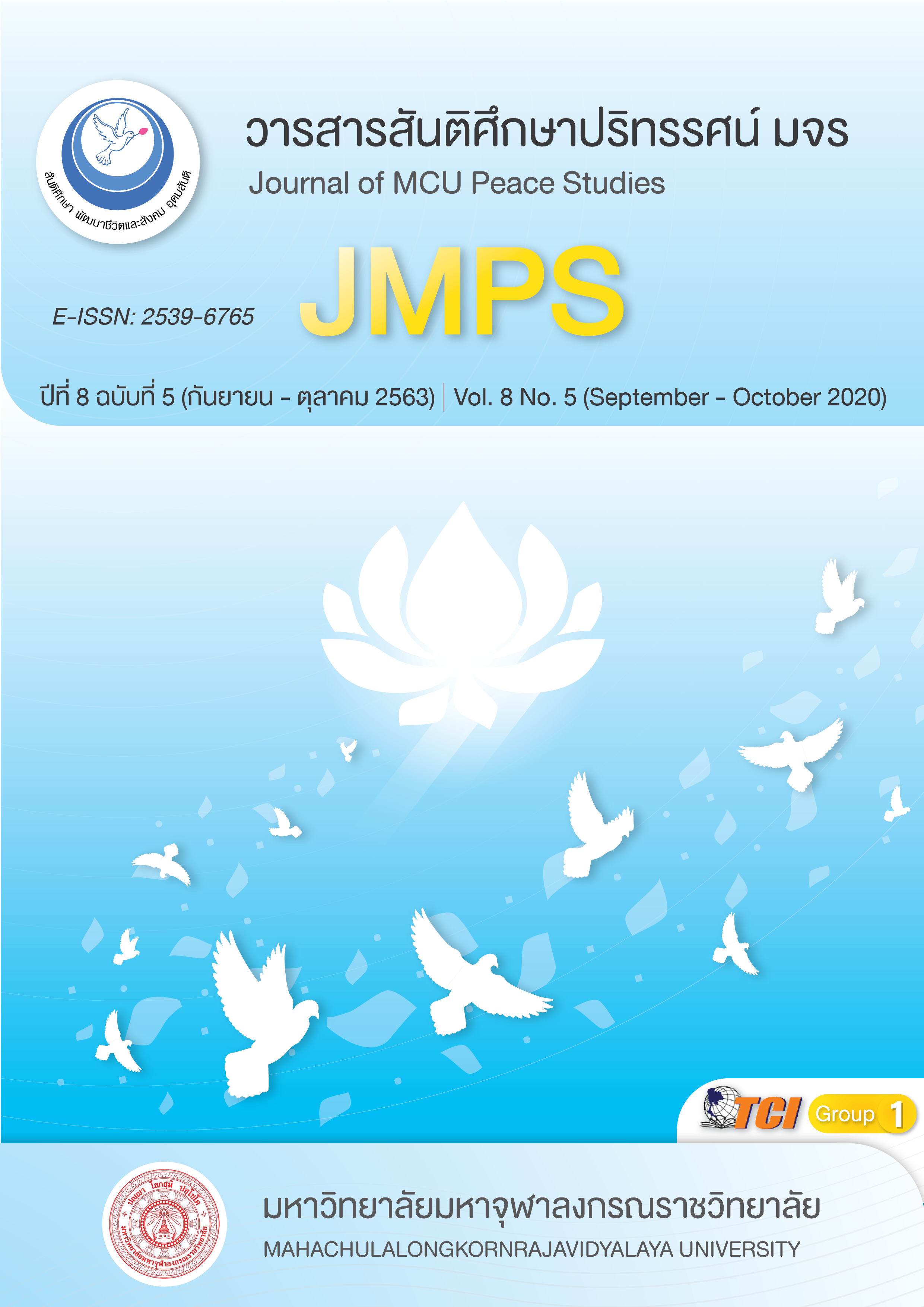The completeness barn: the revolution process of attainment to survival of Thai farmer
Main Article Content
Abstract
This research paper is qualitative research aimed at presenting the adaptation patterns of modern rice and rice barns to the survival of the wisdom of Thai farmers. In-depth interviews with 23 key informants. Discussions with ten experts or group discussions and using descriptive content analysis techniques. The results of the research showed that
- Exchange of knowledge had to build a living barn to occur in the land of ancestors by planting organic rice by relying on the ecosystem. Create a chemical-free zone, and community enterprise groups are joining together for processing and selling by market demand.
- Innovation must have research and development to solve problems that occur, including bringing agricultural products safe for people in society by maintaining ethics and honesty with consumers.
- Sustainability must jointly create abundance for nature and the environment of farming plots. Must together create wealth for life and the context of farming plots. There was a change of attitude from single farming to turning to mixed farming and creating a network of lifestyle according to the sufficiency economy philosophy.
- Creating a path of change must exchange knowledge and extend it to every family, community, and society. To turn the land into a modern barn that is fertile and guarantees food security for the children of the farmers.
Article Details
Views and opinions expressed in the articles published by The Journal of MCU Peace Studies, are of responsibility by such authors but not the editors and do not necessarily reflect those of the editors.
References
Balavuddho, P., & Phumturian, S. (2019). Farmers Development according to the Sufficiency Economy Philosophy of the Kamphaeng Phet Land Reform Office in Thung Khok Wua Land Reform Area, Nakhon Chum Sub-district, Mueang District, Kamphaeng Phet Province. The Journal of Research and Academics, 3(1), 57-68.
Boonari, P. (2001). Northeastern Huan and Isan ancient buildings. Ubonratchathani: Ubonratchathani Rajabhat Institute.
Bundhuwong, C. (2013). Rice and Thai farmers in the changing trend. (Doctoral Dissertation). United States of America: University of Hawaii.
Chitsuthipakorn, V. (2016). Nakhonsawan Farmers' Problems. Interview. October, 12.
Laon, T. (2010). Economic changes of the peasant society in Isan region, from 1957-2007: a case study of Kugasing Village, Roi Ed Province. (Master’s Thesis). Graduate school: Chiang Mai University. Chiang Mai.
Ngamlamom, W. (2011). Sustainable Poverty Solution for Thai Farmer's Life Strategy (Research Report). Pathum Thani: Thai Academy of Management Development Research.
Nildum, S. (2017). Nakhonsawan Farmers' Problems. Interviewe. April, 7.
Noppan, C. (2017). Nakhonsawan Farmers' Problems. Interview. January, 28.
Sangwan, C., and Parinyasutinun, U. (2014). Rice fields in Ranod: The rice farmers’ changing way of life amidst globalization. Journal of Language, Religion and Culture, 3(1), 109-124.
Tuamtad, S. (2017). Nakhonsawan Farmers' Problems. Interview. March, 15
Wongrod, S. (2017). Nakhonsawan Farmers' Problems. Interview. March, 17


